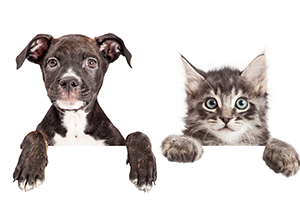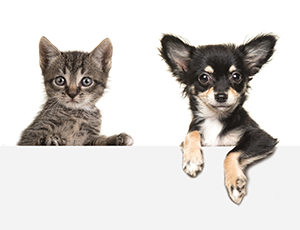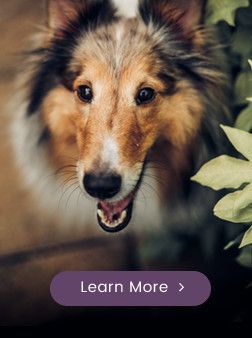Poison Guide: What to do if you think your pet has been poisoned

Sadly thousands of pets every year suffer from the accidental ingestion of harmful substances, many of them household poisons. Poisoning can cause
extreme health problems and even death, but these can be prevented by understanding which common household toxins may harm your pet and how to poison-proof your home. This guide will also explain some of the symptoms you should look out for and what you should do if you suspect your pet has ingested a toxic substance.
Most Common Poisons
We have taken information from the Pet Poison Helpline website to bring you information on some of the most common for cats and dogs. Please be aware that these lists are in no specific order and the toxicity levels for these poisons are variable.
Top Ten most commonly reported cat poisons:
1. Topical spot-on insecticides
2. Household cleaners
3. Antidepressants
4. Lilies
5. Insoluble oxalate plants
6. Human and veterinary NSAIDS
7. Cold and flu medication (e.g. Tylenol)
8. Glow sticks
9. ADHD/ADD medications and amphetamines
10. Mouse and rat poison
Top Ten most commonly reported dog poisons:
1. Chocolate
2. Mouse and rat poisons
3. Vitamins and minerals
4. NSAIDS
5. Cardiac medications
6. Cold and allergy medications
7. Antidepressants
8. Xylitol
9. Acetaminophen
10. Caffeine pills
Plants that are poisonous to pets Although there are thousands of species of plants, there are a few that are highly toxic to pets. This list represents some of the most poisonous plants to pets.
1. Autumn Crocus
2. Azalea
3. Cyclamen
4. Kalanchoe
5. Lilies
6. Oleander
7. Dieffenbachia
8. Daffodils
9. Lily of the Valley
10. Sago Palm
11. Tulips
12. Hyacinths

Human medications poisonous to pets
According to statistics from the Pet Poison helpline, almost 50% of all calls to them are related to suspected poisoning by human medication. Here is a list of the top 10 human medicines most frequently ingested by pets.
NSAIDs (e.g. Advil, Aleve and Motrin)
Acetaminophen (e.g. Tylenol)
Antidepressants
ADHD/ADD medications
Benzodiazepines and sleep aids (e.g. Xanax)
Birth control pills
ACE inhibitors (e.g. Zestril, Altace)
Beta-Blockers
Thyroid hormones
Cholesterol-lowering agents aka statins
Recognizing the signs of poisoning in your pet
The symptoms that your pet will display can be extremely variable depending on what type of poison they have ingested. However, there are some common signs of poisoning that you can look out for.
These include:
- Gastrointestinal Symptoms: diarrhea, vomiting, drooling, lack of appetite, nausea.
- Internal Bleeding Symptoms: racing heartbeat, pale gums, vomiting/coughing up blood, weakness/tiredness and unconsciousness.
- Liver Failure Symptoms: vomiting, diarrhea, black tarry stools, jaundice or yellow coloring to the gums, unusual behavior, weakness, and subsequent unconsciousness.
- Kidney Failure Symptoms: vomiting, diarrhea, excessive thirst or urination, lack of appetite, halitosis/bad breath and decreased/no urination.
If you are at all concerned that your pet may have been poisoned then you should contact your veterinarian immediately, or call the Pet Poison Helpline on 800-213-6680.
Poison-proofing your home
The risk of poisoning can be dramatically reduced by poison-proofing your home. Here are some of the key steps that you can take to keep hazardous substances out of reach of your precious pets.
Keep all medications (prescription and over the counter) in a secure, higher level cupboard.
Keep all cleaning products in a secure cupboard, preferably also at a higher level.
Ensure that there are no pets in the room when you spray cleaning products and wait a good hour or two before you let your animals re-enter.
Close your toilet lid to prevent your pets from drinking the water.
If you have flowers in your backyard, ensure that they are not poisonous (the full list of poisonous plants is available on the Pet Poison Helpine website.)
Educate your whole family about poison safety – it can be especially tempting for young children to share their chocolate treats with their pets. Educating them early about what your pet can and cannot eat will help prevent poisoning.





